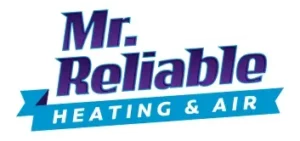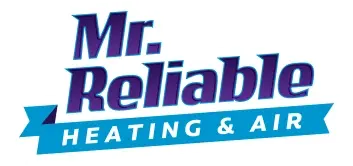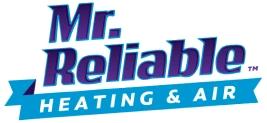As an essential part of modern living, air conditioners provide us with cool, comfortable environments during sweltering summer days. However, have you ever encountered a mysterious puddle of water near your indoor AC unit and wondered, “why is my air conditioner leaking water?” In this blog post, we will delve into the world of air conditioner water leaks, exploring the reasons behind them, and providing practical solutions to prevent this frustrating issue.
Short Summary
Understanding the air conditioner’s water formation process and common causes of leakage can help take proactive measures for prevention.
Regular maintenance, cleaning, filter replacement and inspections are essential to avoid damage caused by clogged lines, low refrigerant levels or broken components.
Signs that professional assistance is needed include water leaks, frozen coils and weak airflow. Seeking qualified technicians ensures proper functioning of your AC system.
Understanding the Air Conditioner’s Water Formation Process
An air conditioner’s primary function is to cool and dehumidify the air in your living space. As the warm, humid air passes through the evaporator coil, moisture accumulates on its surface and drips into the drain pan. This water then slides through a condensate drain line that leads to the exterior of your home, preventing any air conditioner from leaking water inside. It is crucial to understand this process, as water leaks can lead to damage to ceilings, walls, and floors, decrease AC performance and efficiency, and result in bio-growth that contaminates the air.
Knowing the water formation process in an air conditioning system helps identify potential issues that may cause leaks. For instance, if the drain pan or drain line becomes damaged or clogged, water can overflow and result in water leaks. By maintaining the components involved in the water formation process, you can ensure your air conditioner works efficiently and prevent potential water damage to your home.
Top 6 Reasons Behind Air Conditioner Water Leakage
There are several factors that can contribute to your air conditioner leaking water. These factors range from simple maintenance issues to more complex problems requiring professional attention.
In this section, we will explore the top 6 reasons behind air conditioner water leakage. By understanding these common causes, you can take proactive measures to prevent leaks and keep your AC system running smoothly.
Clogged Condensate Drain Line Issues
Clogged condensate drain lines are a frequent cause of air conditioner water leaks. When dirt and debris accumulate in the drain line, it can create a blockage, preventing water from draining properly and causing the drain pan to overflow. This overflow can lead to water leaks and potential damage to your home.
To prevent clogged condensate drain line issues, it is essential to perform regular maintenance and cleaning. Here are some steps you can take.
Use a long wire brush to clear any debris blocking the drain line.
Use a wet/dry vac to remove any blockage in the line quickly and efficiently.
If you encounter a clogged drain line, it is recommended to shut down the unit and clear the line to prevent further complications.
Another factor that can contribute to clogged drain lines is the accumulation of algae in the drain pan and line. To avoid this issue, ensure your AC unit is properly maintained and routinely cleaned to prevent algae growth. By keeping your condensate drain line clear and free of obstructions, you can effectively prevent air conditioner water leaks and protect your home from potential damage.
Damaged or Rusted Drain Pan
A damaged or rusted drain pan is another potential cause of air conditioner water leaks. Over time, wear and tear or inadequate maintenance can result in damage or rusting of the drain pan, creating holes through which water can leak. An ill-fitting drain pan can also lead to water leakage, as it may not properly collect the condensation from the evaporator coil.
If you discover that your AC’s drain pan is rusted or damaged, it is important to address the issue promptly to prevent further water leaks. Here are the steps to take.
Replace the old, rusty drain pan with a new one. This is often the most effective solution.
Do not attempt to seal the pan yourself, as this may not provide a long-lasting solution.
Call an HVAC specialist to assess the situation and recommend the appropriate course of action.
By taking the necessary steps to repair or replace a damaged drain pan, you can effectively prevent air conditioner water leaks and ensure your AC system continues to function efficiently.
Dirty Air Filter Complications
Dirty air filters can also lead to air conditioner water leaks. When air filters become clogged with dust and debris, they can restrict airflow to the evaporator coil. This restricted airflow can cause the evaporator coil to freeze, leading to water leaks as the ice melts. In contrast, proper airflow with warm air can help prevent such issues.
To prevent dirty air filter complications, it is essential to replace your air filters regularly. It is recommended to change air filters every 1-3 months, depending on the type of filter and the specific needs of your home. By consistently replacing your air filters, you can ensure that your AC system operates efficiently and minimize the risk of water leaks.
If you have already replaced your air filter and are still experiencing water leaks, it may be necessary to seek professional assistance. An HVAC technician can help identify and address any underlying issues contributing to the water leakage, ensuring that your air conditioner continues to perform effectively.
Low Refrigerant Levels
Low refrigerant levels can also contribute to air conditioner water leaks. When refrigerant levels are insufficient, the evaporator coils may eventually freeze, preventing the liquid from being converted to vapor. As temperatures rise, the frozen material will melt and cause a leak in the air conditioning unit.
To prevent low refrigerant levels and the associated problems, it is important to conduct regular inspections and routine maintenance of your AC system. An HVAC professional can help identify any refrigerant leaks and ensure that your air conditioner has the proper amount of refrigerant for optimal performance. By maintaining adequate refrigerant levels, you can minimize the risk of water leaks and ensure your AC system continues to cool your home effectively.
If you suspect that your air conditioner has low refrigerant levels, it is essential to seek professional assistance. Attempting to address the issue yourself can lead to further complications and potential damage to your AC system. A trained technician can safely and effectively diagnose and repair refrigerant leaks, ensuring the proper functioning of your air conditioner.
Broken Condensate Pump or Float Switch
A broken condensate pump or float switch can also lead to air conditioner water leaks. These components play a crucial role in managing water accumulation within your AC system. If they become damaged or malfunction, water can accumulate and eventually overflow, resulting in water leaks.
If you suspect that your AC system has a broken condensate pump or float switch, it is important to contact a professional technician for ac repair or ac replacement. Attempting to fix these components yourself can lead to further complications and potential damage to your AC system. An HVAC specialist can accurately diagnose the issue and recommend the appropriate course of action to resolve the problem.
By addressing broken condensate pumps or float switches in a timely manner, you can effectively prevent air conditioner water leaks and ensure the proper functioning of your AC system.
Improper AC Installation
Improper AC installation can also cause water leaks. Incorrect installation can lead to a variety of issues, such as:
Misaligned or disconnected components
Improperly sealed connections
Blocked or clogged drain lines
Inadequate insulation
All of these issues can contribute to water accumulation and leakage. Ensuring accurate installation and carrying out regular maintenance are essential to preventing water leaking caused by improper installation.
If you suspect that your air conditioner has been improperly installed, it is important to seek professional assistance to rectify the issue. A trained technician can assess the installation and make any necessary adjustments or repairs to ensure your AC system operates efficiently and effectively. By addressing improper installation, you can minimize the risk of water leaks and protect your home from potential damage.
In summary, proper AC installation and regular maintenance are crucial to preventing air conditioner water leaks. By ensuring that your air conditioner is correctly installed and well-maintained, you can enjoy a cool, comfortable living environment without the worry of water leaks and their associated consequences.
How to Prevent and Fix Air Conditioner Water Leaks
To prevent and fix air conditioner water leaks, it is crucial to take proactive measures and address potential issues before they escalate. Regular maintenance, including filter replacement, drain line cleaning, and proper installation, can help prevent water leaks and ensure that your AC system functions efficiently.
In some cases, you may encounter persistent water leaks despite your best efforts to maintain your AC system. If this occurs, it is important to seek professional assistance to assess and address the issue. An HVAC technician can help.
Identify the underlying cause of the water leak
Recommend the appropriate course of action to resolve the problem
Ensure the proper functioning of your air conditioner
By taking the necessary steps to prevent and fix air conditioner water leaks, you can protect your home from potential water damage and ensure a comfortable living environment for you and your family.
Signs Your Air Conditioner Needs Professional Help
Knowing the signs that your air conditioner needs professional help is essential to addressing potential issues before they escalate. Persistent water leaks, frozen coils, and broken components are all indications that your air conditioner may require professional assistance. If you encounter any of these issues, it is important to contact a qualified technician to assess and address the problem, ensuring the proper functioning of your AC system.
By recognizing the signs that your air conditioner needs professional help, you can take timely action to address potential issues and prevent further complications. Here are some signs to look out for:
Weak airflow
Strange noises
Foul odors
Frequent cycling
High humidity levels
Water leaks
Regular maintenance and professional assistance can ensure the longevity and efficiency of your AC system, providing you with a comfortable living environment free of unwanted AC leaking water issues.
Summary
In conclusion, air conditioner water leaks can be a frustrating and potentially damaging issue for homeowners. By understanding the common causes of water leaks, such as clogged drain lines, damaged drain pans, dirty air filters, low refrigerant levels, and broken components, you can take proactive measures to prevent and fix these issues. Regular maintenance, proper installation, and seeking professional help when necessary are all crucial steps to ensuring a cool, comfortable living environment without the worry of water leaks. Don’t let a minor issue turn into a major headache; take action today to protect your home and enjoy the full benefits of your air conditioning system.
Frequently Asked Questions
How do I stop my air conditioner from leaking?
Regularly change your air filters, clean out the condensate drain line and make sure your drain pan is the right fit for your unit.
Additionally, pour bleach into your drain line every 6 months to prevent your air conditioner from leaking.
Should I turn off my AC if it’s leaking water?
When your air conditioner starts leaking, turn it off right away and investigate the cause. Clean up the compressor fan, evaporator coils, drain pipe or drain line to identify and address the issue.
If that doesn’t work, call an HVAC expert for help.
How often should I replace my air filter to prevent water leaks?
It is recommended to change air filters every 1-3 months to prevent water leaks.
What are some common causes of air conditioner water leaks?
Common causes of air conditioner water leaks include clogged drain lines, damaged drain pans, dirty air filters, low refrigerant levels, and broken components.
These issues can be caused by a variety of factors, such as improper installation, lack of maintenance, or age. To prevent water leaks, it is important to regularly inspect and maintain your air conditioner. This includes checking the drain lines.
How can I prevent water leaks caused by clogged condensate drain lines?
Regular maintenance and cleaning of the condensate drain line using a long wire brush or wet/dry vac can help prevent water leaks due to clogged drain lines.



